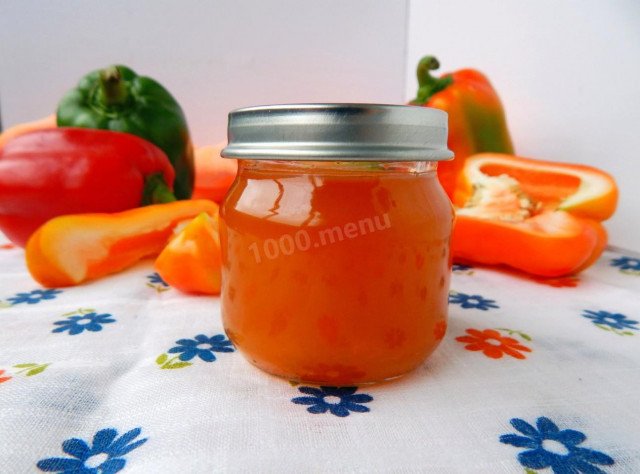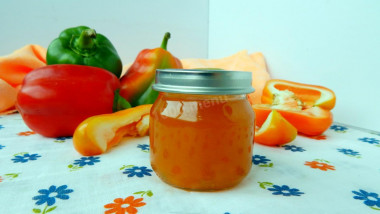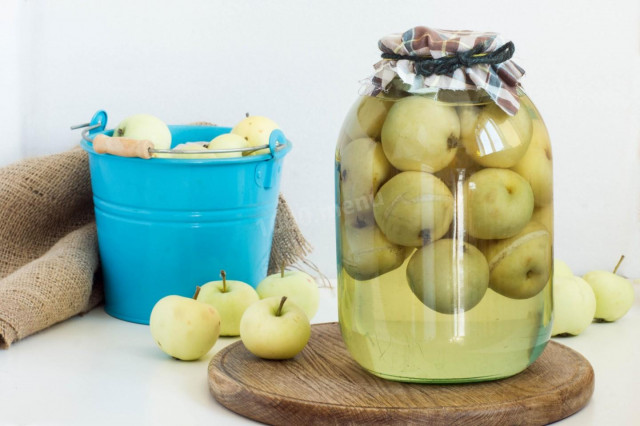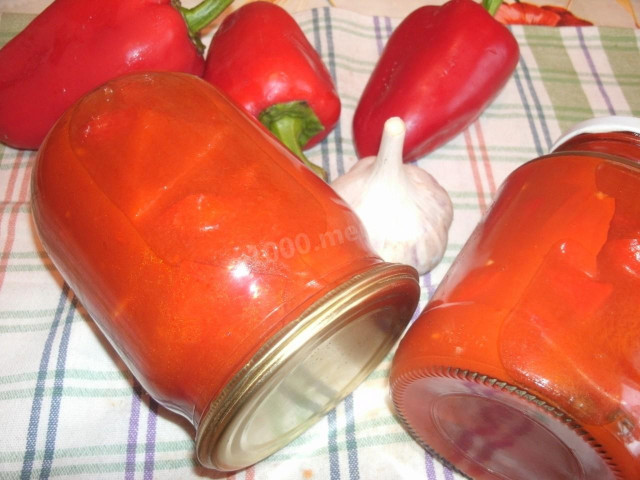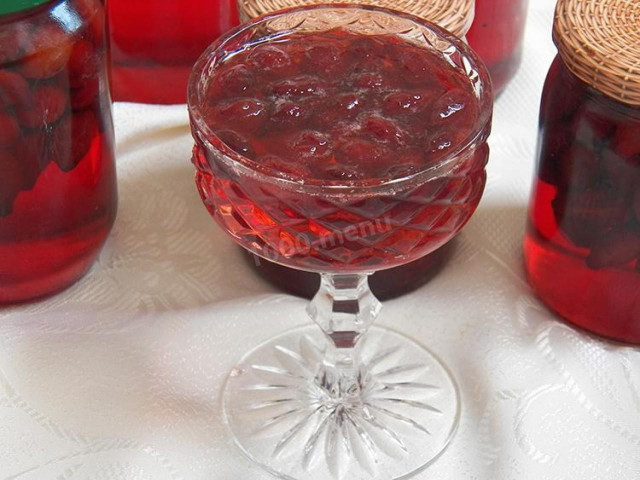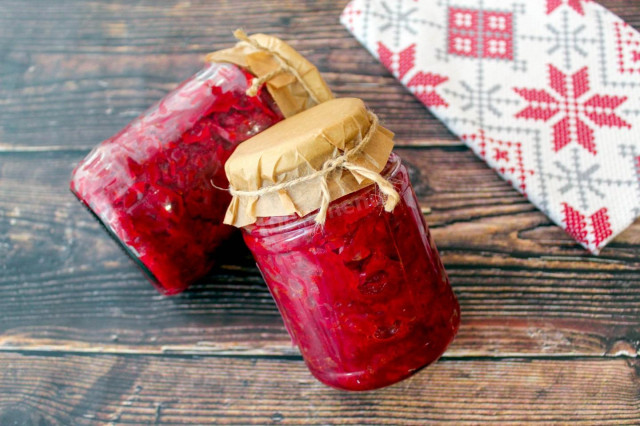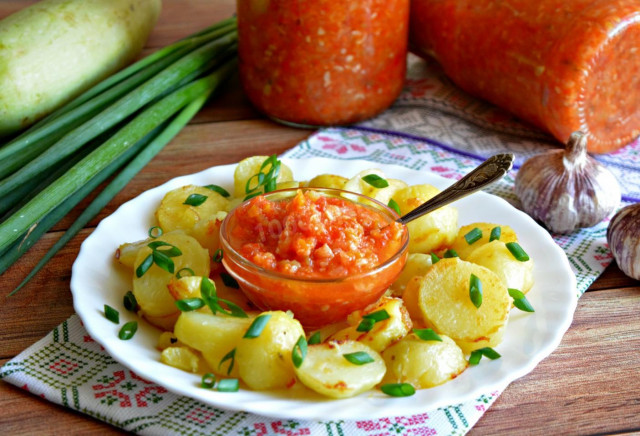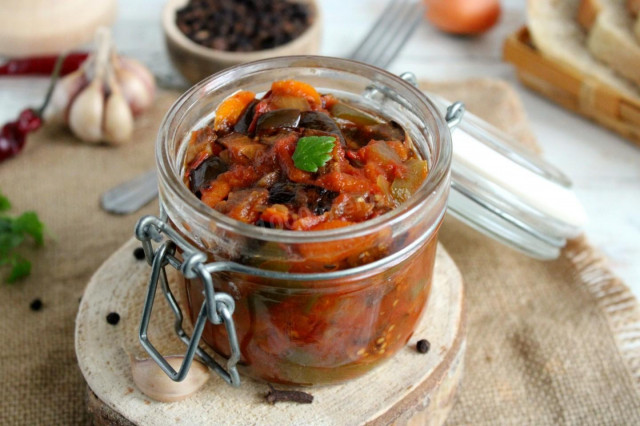Composition / ingredients
Step-by-step cooking
Step 1:
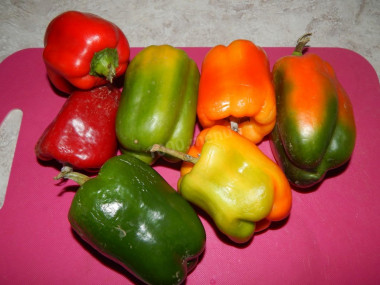
Let's prepare the ingredients for making juice from Bulgarian pepper for the winter. To do this, you need only ripe fruits of Bulgarian pepper. Suitable vegetables of any color: red, green or yellow pepper. Bulgarian peppers are well washed under running water. We remove the stems with seeds. Once again, we rinse the peppers with water, washing out the remaining seeds. We throw the peppers into a colander, let the water drain.
Step 2:
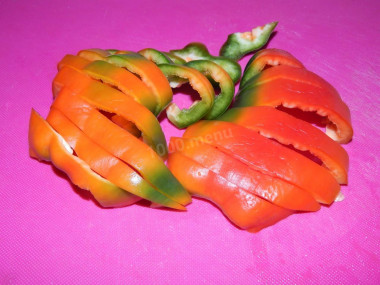
Cut the peppers into strips or small cubes, place them in a metal saucepan. Pour a little water so that the peppers do not burn to the bottom of the dishes. Turn on the fire. As soon as the water boils, reduce the heat to medium and simmer the peppers, stirring occasionally with a spoon, for about 15 minutes so that they become soft.
Step 3:
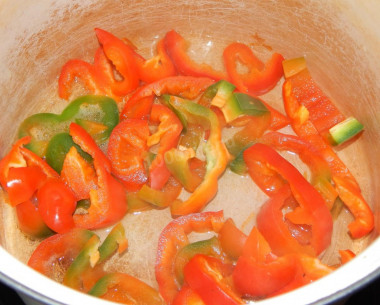
Using a blender, grind the bell pepper into a mush. Put the resulting mass on the fire again and cook for about 7 minutes. Let the mass cool down and strain it through a sieve.
Step 4:
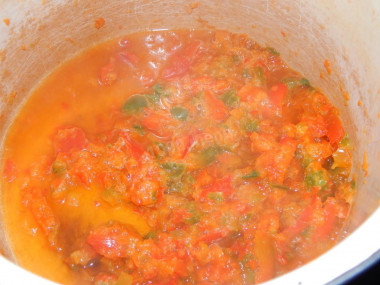
If there is no blender, then you can use a simple meat grinder, passing fresh bell peppers immediately through a meat grinder, and then cook mashed bell peppers and rub through a sieve. Then the juice from the Bulgarian pepper will turn out thick, with pulp. Such juice will be inconvenient to drink, but it can serve as an excellent basis for adjika or lecho, as well as for cooking other vegetable dishes.
Step 5:
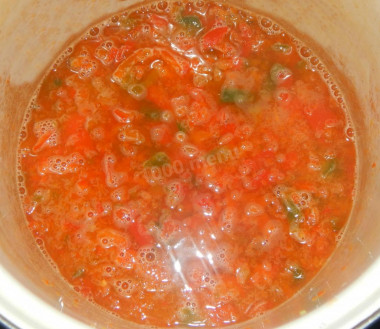
Or you can do it even easier and pass the Bulgarian peppers through the juicer, then the juice will turn out immediately light. Without impurities, it will only be drained into a saucepan and cooked.
Step 6:
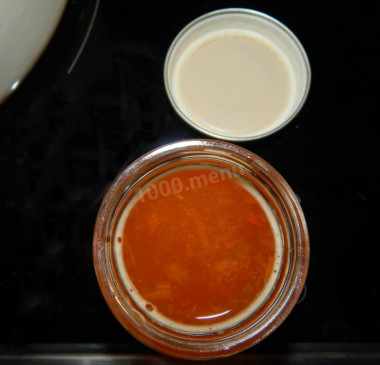
It is better to use a small volume of jars for rolling the juice from Bulgarian pepper. We sterilize them in the oven at a temperature of 150 degrees, having previously washed them in a soda solution. We put the jars wet in a cold oven on the grill with the neck down. The lids are boiled and dried.
Step 7:
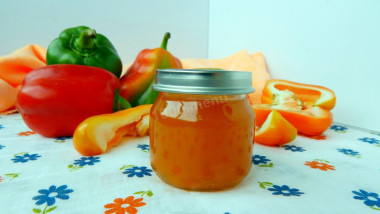
The juice is poured into sterilized jars, covered with lids and sterilized in a saucepan filled with water with a cloth at the bottom. Sterilize the jars with a volume of 0.5 liters for 15 minutes from the moment the water boils. We roll up the jars, turn the jars upside down, cover them with a blanket, let them cool down and put them in the refrigerator for storage. Bon appetit!
Caloric content of the products possible in the composition of the dish
- Sweet pepper - 27 kcal/100g

